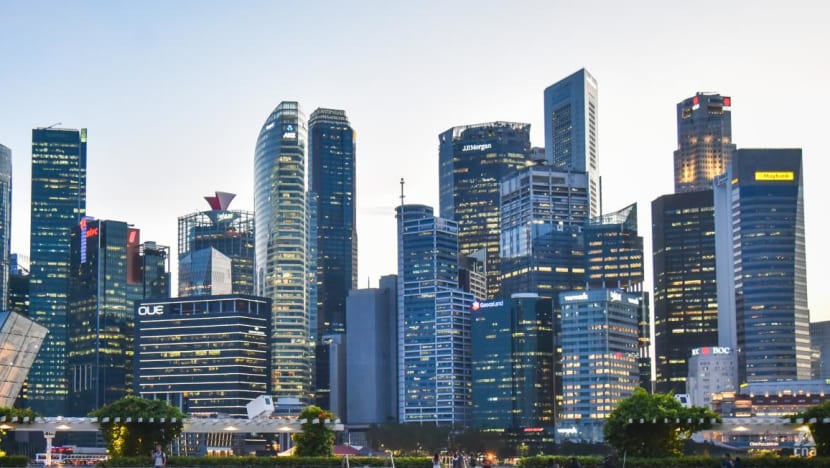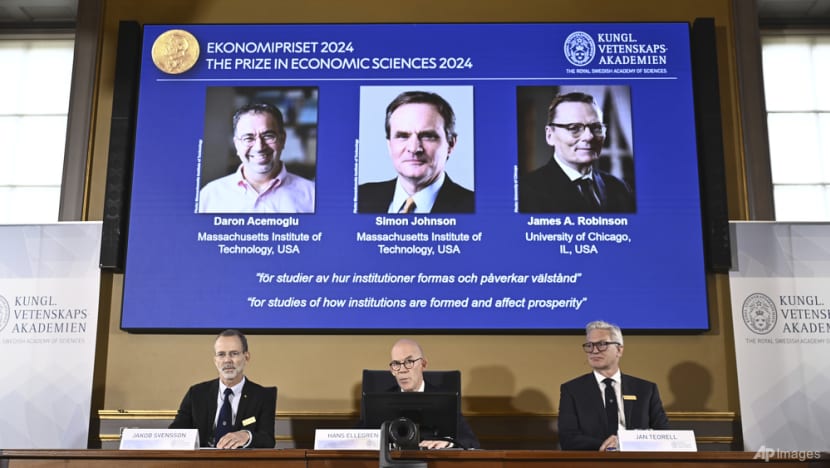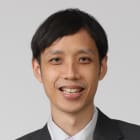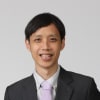Commentary: Why are some countries rich and others poor?
Singapore is a good illustration of the importance of inclusive institutions to national development, but there’s more to be done, says the Lee Kuan Yew School of Public Policy’s Terence Ho.

File photo of the Singapore skyline. (Photo: CNA/Syamil Sapari)

This audio is generated by an AI tool.
SINGAPORE: Why do some countries prosper and others falter? Is it a matter of geography and resources? Or is it the nature of governments and institutions?
Last month, the Nobel Prize in Economic Sciences was awarded to Daron Acemoglu, Simon Johnson and James Robinson for their research into the role institutions play in shaping national prosperity.
While the prize has in past years been awarded for esoteric work in fields such as econometrics and game theory, this year’s award draws attention to a concept that is more relatable to the public: The relationship between societal institutions and national prosperity.
It is a timely reminder that economics and politics are inextricably linked. The award shines the spotlight on institutions within the political economy, which may be vastly different from the mathematical models of an ideal economy.
Acemoglu, Johnson and Robinson posit that in countries where European colonisers chose to settle, they established “inclusive” institutions that have fostered prosperity over time. By contrast, in countries where settler mortality was high, they established “extractive” institutions that benefited local elites at the expense of the wider population, resulting in long-term economic stagnation.
Why does this matter to Singapore?

AVOIDING THE FATE OF RESOURCE-RICH COUNTRIES
First, Singapore is a good illustration of the importance of inclusive institutions to national development.
Relatively benign British colonial rule bequeathed Singapore a parliamentary democracy, rule of law and a functioning civil service.
Self-government and subsequent full independence saw inclusive development taken a step further, as the government prioritised social investment in education, housing and healthcare.
Singapore avoided the fate of resource-rich countries where resource extraction dominates the economy. This tends to benefit the few rather than the many, as profits accrue to oligarchs and their political patrons who control the oil or mineral deposits. All too often, resource revenues that could have been invested in education and social well-being are lost to corruption, tax evasion and fiscal inefficiency.
By contrast, Singapore invested heavily in people as its only resource, with education among the largest components of the national budget. It was also in the interest of multinational corporations with manufacturing operations here to invest in training the workforce. This set the foundation for sustained income growth built on human capital development.
Home ownership was also central to Singapore’s social agenda. Singapore’s public housing programme gives the majority of the population an asset that appreciates in tandem with economic growth, allowing citizens to share in national prosperity.
Another key institution, the National Trades Union Congress (NTUC), champions worker interests and established social enterprises to provide affordable insurance, transportation and groceries for workers and their families. This has been vital for industrial harmony and social cohesion.
PRESSURES ON SINGAPORE’S ECONOMIC FUTURE
The second takeaway is that Singapore must continue to prioritise inclusive growth in its next bound of development. Decades of globalisation and rising affluence have placed upward pressure on inequality and raised the cost of living significantly. Without active government intervention, it is also likely that social mobility will slow.
Over the past two decades, the government has introduced numerous programme and policies to strengthen social security and social inclusion. These include universal healthcare and long-term care insurance, permanent social transfers including the Workfare Income Supplement, the Progressive Wage Model, and most recently, income support for the involuntarily unemployed.
While some may interpret this as prioritising social equity over economic growth, the reality is that future economic progress hinges on social cohesion and inclusivity. Otherwise, public support for economic openness and growth-oriented policies could easily give way to populist nativism.
Furthermore, Singapore can ill afford to leave behind any segment of its population, given the need to maximise the potential of all citizens as birth rates fall and the population ages.
Even with a larger role for redistribution, human capital investment must continue to be prioritised as the ultimate driver of economic progress. It is all the more critical today, where AI and automation are able to replace human beings in a growing number of tasks.
ALLOWING IDEAS TO FLOURISH
The third reflection is that Singapore must encourage innovation by allowing ideas to flourish.
Acemoglu and his collaborators are strong proponents of democracy as the form of political organisation most compatible with inclusive institutions. It is debatable whether Singapore, with a government that some observers characterise as authoritarian, would fit their archetype of democratic inclusiveness.
What may be most critical is whether Singapore embraces diversity of thought as the foundation of an innovative society.
Freedom of information inadvertently opens the door to misinformation and disinformation, which can have pernicious effects. For instance, anti-vaccine activists can undermine public healthcare by sowing doubts in people’s minds about the safety of vaccines.
The answer is not to shut down ideas or critics but rather to counter disinformation with access to information, transparency and public education. Building media literacy, in particular, will be crucial for the public to be discerning consumers of information.
With Singapore reaching the limits of “catch up” growth by adopting technology and know-how from abroad, its next stage of growth will require more indigenous innovation and original thinking.
Like any other country, Singapore’s society and governance are not perfect. Singapore needs “loving critics” - in the words of veteran diplomat Professor Tommy Koh - to continue progressing as a society.
If we are to take away something from the work of this year’s Nobel economics laureates, it is that prioritising inclusive development and permitting ideas to flourish will be key to Singapore’s growth and prosperity in the years ahead.
Terence Ho is Associate Professor in Practice at the Lee Kuan Yew School of Public Policy. He is the author of Future-Ready Governance: Perspectives on Singapore and the World (2024).



















